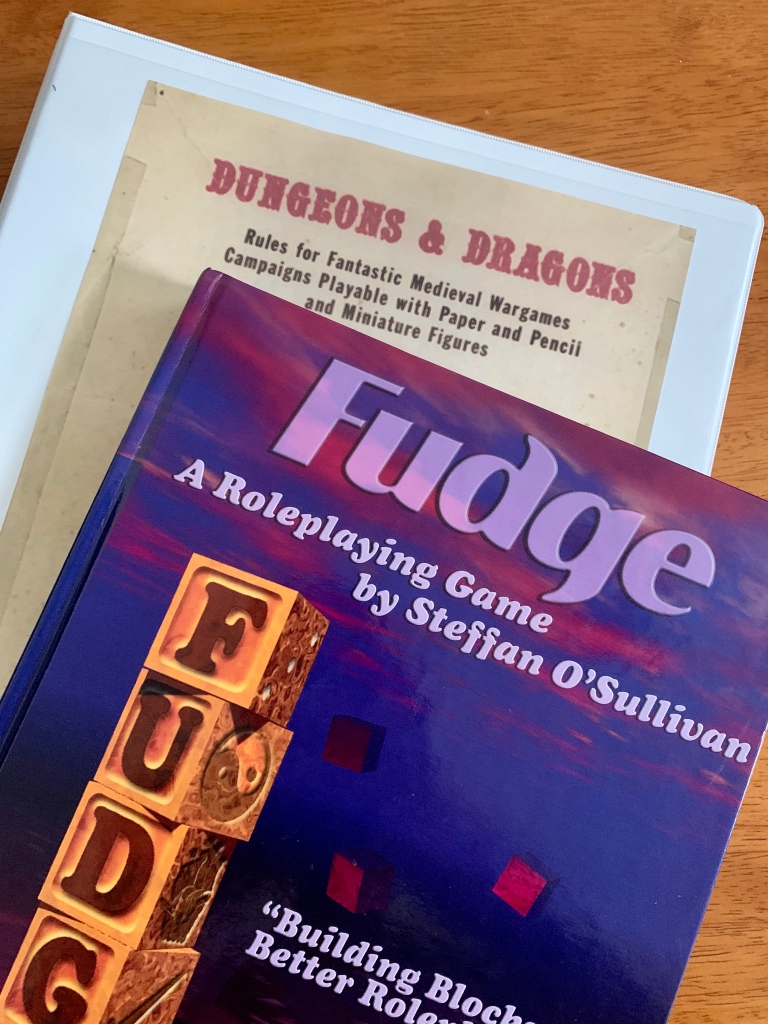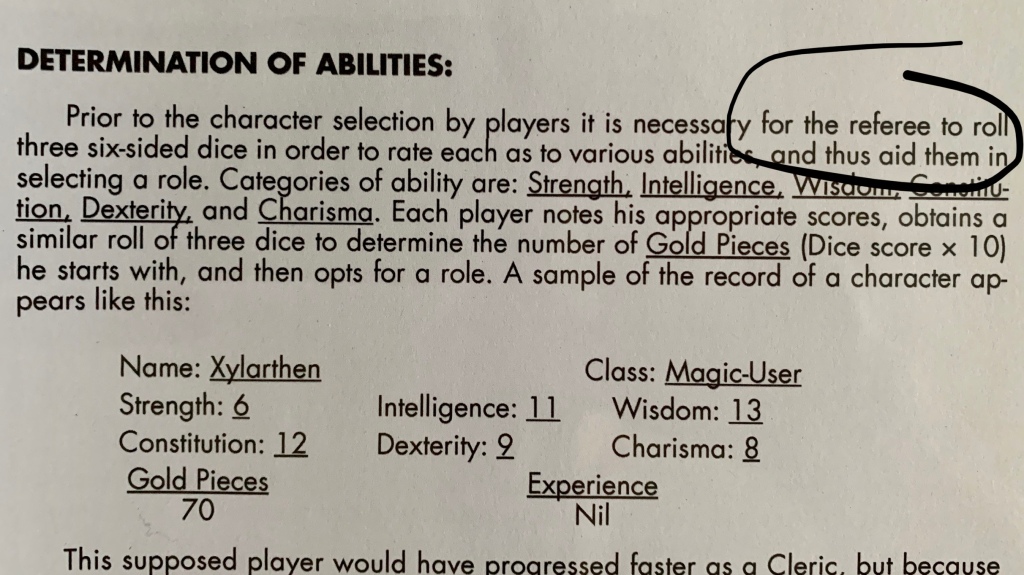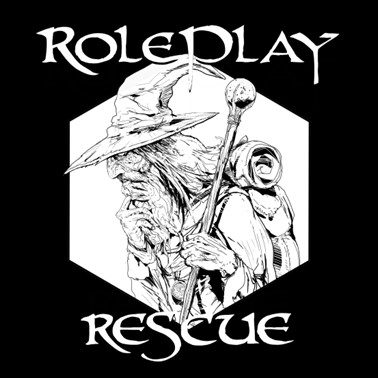Following on from today’s interview with Daniel Jones about Otherworld Immersion, I’ve been thinking an awful lot about what Daniel calls, “Methodology”. This is the stuff of roleplaying gamers that isn’t the Rules and isn’t the World: it’s the methods we use to actually play, to bring those Rules and that World into harmony.
One of my side projects in the last fortnight or so has been re-reading the classic Fudge RPG rulebook, in the 10th Anniversary Edition that I currently have to hand. Each time I began to apply the Fudge system, what these days might be viewed as a “hack”, I kept hearing a voice in my head saying, “Why are you doing this? What’s this doing that Fudge can’t?”
Good question. The one big thing Fudge offers that GURPS doesn’t is the use of words to describe traits instead of the use of numbers. I guess the rest of what has been great about reading Fudge again is to remind me to think about my Methodology. You see the swirling spiral of thought that I have being wandering?
The answer, when I took a nano-second to think about it, was to simply ask the neophyte player to tell me which Attributes and Skills they want to attach to which label. For example, to ask stuff like, “Are you fast or strong? How fast? How strong?”
From here, it is a short step to use the guidance in Fudge on conversion from other systems (Fudge 10th Anniversary Edition, page 57) to then peg that Attribute level in GURPS. To extend the example, the player wishes to be Fairly Strong; this would correlate to a range of 9-12 in GURPS terms… unless you want a more optimised approach, as mentioned on that same page in Fudge, making Fairly Strong more like 12-13. Simple stuff.
That, however, led to another thought: in doing this for my neophyte player, why do I allow any of the players to create their own characters? Good question. And it’s a question of Methodology.

In The Beginning…
I thought it was fairly well-known that in the beginning, speaking of the first published roleplaying game – namely Dungeons & Dragons (1974) – we read that it is the job of the Referee to roll up characters. Most players don’t believe me when I say this, so here’s a photo from my printed-off copy of the Original D&D rules:

As it was then…
So, nowadays, most players simply assume that they will be either rolling up or designing their characters. That’s not surprising given that this is widely perceived to be the way it was always done. Even given the knowledge that it wasn’t always done this way, it’s the way the vast majority of gamers play almost all roleplaying games. Which brings me to Mark Twain:
Whenever you find yourself on the side of the majority, it is time to reform (or pause and reflect).
Mark Twain, Notebook, 1904
This quotation is on my classroom wall. It’s there, like so many others, because I value it greatly as a thinking tool. Just because everyone else is doing something does not validate the action. So… why do we let players create their characters?
Lazy Thinking?
That’s a harsh subheading, Webster.
As a Player, I expect to create my character because a) that’s what you do in a roleplaying game, and b) I don’t trust anyone else to do it for me. That’s quite telling.
As a Game Master, I expect Players to do the character creation because it’s a lot of work to create characters and I am a lazy bugger. Also quite a telling point.
I am generous to neophytes – I’ll do the work for them because I want them to play. Alternatively, we’ll play a dead simple game (like Dungeons & Dragons?) so that they can just roll up the stats and get playing.
Oh, and of course, sometimes it’s a “Beer and Pretzels” game: we just need to get playing quickly and it’s easier if the players do the character work. Fair enough, right?
In truth, it’s not lazy thinking as much as not thinking. Personally, I just go through the process of character creation on the assumption that it’s the Player’s job and my job, as Game Master, to help only if needed. Honestly, I have tended to resent Players too lazy to make their own characters: how dare they give me more work?
Methodology Questioned
I am openly questioning this method of character creation.
How about the Game Master sits down with a Player and they have a conversation about the kind of game they want to play? In my fantasy world, I am seeking Otherworld Immersion and so I want my players to focus on attaining a perception of the fantastic world their character is in through that character’s eyes.
Methodologically, I am not going to tell my players the Rules of the game except when they need to know those Rules; many rolls of the dice will be hidden from their sight so that they can focus on the description of the situation in the World. For me, this could be enhanced from the moment we create a character.
Here’s a very quickly sketched out, back of the fag packet, kind of suggestion.
Talking It Through
There are four major things to discuss: Strength, Dexterity, Intelligence, and Health. How would you rate character in those things? How would you prioritise them? Here are some words, which ones describe each of those attributes: Superb, Great, Very Good, Good, Fair, Mediocre, or Poor?
What does the character do in the World? We could talk about roles and what the Player wants to play. Funny that, given it’s a roleplaying game, eh? Once we are talking actions, you could ask them what kinds of skills the character does really well. What stuff are they ok at? What are they rubbish at? Cue in to Good, Fair, Mediocre, or Poor skills.
Talk about other stuff, like what they want to do in the World. Goals. Stuff like that – roleplaying stuff, player agency stuff. Let all of this flavour the character design. Listen carefully. Make notes.
And then, go and make that character for that Player. Give them the completed sheet, talk it over, make sure it fits their ideas. Tweak it as needed. Set to play a little – perhaps two or three sessions – with the caveat that numbers can be tweaked. See what happens.
I don’t think Players need to be making up their characters. It might be fun if the Game Master does it for them.
Game on!

It always fascinates me that some players are very particular about building characters themselves and others aren’t. I do play with a lot of very experienced GMs and I suspect that has somethjng to do with it. While I certainly wouldn’t mind making a GM do the hard work, I do like to get to know a systems and have a say in how my character is built (which I know is in line with what you are suggesting). There are players out there who I know would hate it, just like there are those who I know would love it because they hate char gen (in some systems anyway). As an aside, pregens are very common in convention games and I rarely hear any complaints there, or any lack of fun when playing them.
Question, if you play for immersion, then why should you have a full say in your character? I can’t say I could choose everything about my own life.
LikeLike
Thanks, Barry – encouraging to have a considered response to my post. I am sure there are lots of good reasons for players to create their characters that I haven’t considered, and yet I found it hard to think of many that added value to the experience of play… outside of “knowing your stuff” and “making sure the GM doesn’t screw me over”, my big reason is that I enjoy making characters. I rarely play with them, however. Odd, really.
LikeLike
Good questions 🙂 But I think we need to dive a bit deeper in what it means to “create a character”. First, let’s set aside all the situations where you run a game with pre-gens, because that happens all the time at conventions, and some games make it a more or less common occurence (especially mystery games).
There are 2 things involved in creating a character: (1) coming up with the concept and the somewhat detailed description and (2) translating this into whatever the game system is made up of (traits and numbered scores usually)
CHARACTER CONCEPT
Here we already have a whole spectrum of possibilities, although it never goes all the way to the GM doing all the work (at least not in my experience). Some GMs start with a “do whatever character you want, as long as it belongs in the setting”, but that often results in weak group cohesion, unless the first session starts with a group-bonding event like “you all get trapped in a cave” or “you are get sent to prison” or whatever.
Most likely, the GM will define a part of the character concept: “you all need to have a reason to escort this caravan across the Forest Of Dangers”, or “you’re all mercenaries working for Cyberdine Enterprises”, or “you’re all FBI agents”. So in these cases, the players only have freedom over the personality, secondary specialty, and personal life of their characters.
And even then, it’s typical to see a conversation between the player and the GM: “can my FBI agent be a mole for the Russian mafia?”… the GM might refuse (because the Russian mafia already features in the adventure, or because they don’t want this particular adventure to feature themes of corruption and anti-heroes, or because another character is someone with a vendetta against the Russian mafia, or because there’s already another Russia mole in the group!), or modify the idea (“How about you’re a mole for Triads instead? Don’t ask me why, you’ll see pretty quickly”) to better fit the adventure. This is actually one of the most important steps in character creation, and one that I am still not good enough at: I often realize that there are character motivation problems down the line in the story that could have been avoided if I had enforced more requirements on character creation. Of course this isn’t as much of a problem in a dungeon crawl sandbox, for instance.
Finally, some tables do shared character creation and, as such influence each other’s concepts. It can go from off-hand comments that get picked up (“oh great idea!” “err I was joking” “no, no, I’m totally gonna do that!”), to the typical player hesitating between a couple specialties and checking what else the party has at that point (“should I be a tank or a healer? what are we missing so far in the party?”). As such, players also collaborate between themselves and partially create each other’s character.
CHARACTER SHEET
Ok, so now we have a character concept which, in most cases (again, in my experience), are actually made half by the GM and half by the player, through the GM’s original requirements and subsequent collaboration between everybody. It’s time to translate this onto a character sheet.
Some systems make this easy. So Fudge/FATE or HeroQuest basically take your concept and everything that sounds suspiciously like a trait goes down on the sheet. For other systems like GURPS, it might take more work: the GM needs to provide guidance about which skill or what score is appropriate to model a specific aspect of the character… that can go into, say, a GURPS Advantage with multiple modifiers and such.
Of course, the GM could do all of this on their own, but, first, that’s no fun and a lot of work. Second, the whole table just went through an hour of discussion about the setting, premise of the adventure, character requirements, etc… it’s no time to send everybody home so the GM can work on the character sheets, although it’s possible if all this Session Zero was done “offline” (emails)… but it’s always better to make it a live discussion.
For me the most important thing here is player education and/or control.
If the player is familiar with the system, they probably want to make the character the way they want. They might be familiar with the system but not care too much about numbers, because they’re more of a narrative/roleplayer type of player. In this case, they mostly make their character to give less work to their already overworked GM.
If the player is *not* familiar with the system, character creation is a great way to learn the system and get to know your character sheet. Pre-gens are nice (and desirable) for a one-shot adventure, but if the goal is to start an open-ended campaign, it’s a lot more effective IMHO to have the player go through character creation, than to hand them a filled sheet and point at the numbers they need to roll.
Also, if the player is here during character creation, the GM can’t be blamed for making a mistake! 🙂
Well, that was a lot longer than I thought 🙂
So I guess my points here are:
1) Players rarely create characters on their own — it’s more of a shared creation.
2) Having players translate their concept into numbers is a good tool to learn a system, or reinforce knowledge of a system.
Cheers!
LikeLike
Thanks for this comment – I enjoyed the thoughts and am grateful for the time you took to write it. My main takeaways are two points: 1. Character creation is (ideally) a group endeavour, GM plus all the players, and not advisedly done alone; this has, in the past and even recently, been a mistake I have made. 2. I like the idea that Players can learn the system through creating characters; I think this is why most of my solo play learning with systems features making a character and running a fight – participation in these two practices are central to grasping how the Rules bit of a game will work. Thank you for those insights. Game on!
LikeLike